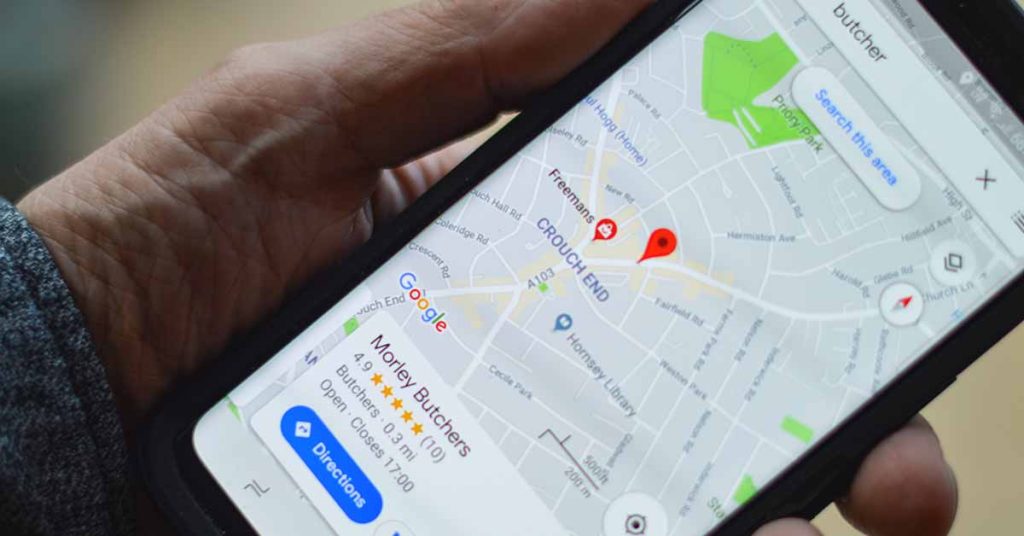Welcome to the world of search engine optimization (SEO), where the magic happens and your website can climb the ranks of search engine results pages (SERPs) to attract organic traffic. In this article, we will explore the ins and outs of SEO, demystifying the process and providing you with actionable tips to optimise your website. So, grab a cup of coffee and let’s dive into the exciting realm of SEO and its potential to boost your online presence.
Table of Contents
What Is SEO (Search Engine Optimization)?
SEO stands for Search Engine Optimization. It refers to the practice of improving your website’s visibility in organic search results. According to research by BrightEdge, 53% of all website traffic comes from SEO. It involves implementing various strategies and techniques to make your website more appealing to search engines, thereby increasing its chances of appearing higher in search results. The primary goal of SEO is to drive non-paid traffic to your website, resulting in more leads, conversions, and revenue.
Why Is SEO Important?
In today’s competitive digital landscape, having a strong online presence is necessary for businesses and individuals alike. With millions of websites competing for attention, SEO provides a way to stand out from the crowd. Here are some reasons why SEO is important:
- Increased visibility: When your website appears on the first page of a search, it gains exposure to a broader audience, increasing the likelihood of attracting potential customers.
- Organic traffic: SEO helps drive organic, non-paid traffic to your website. These visitors are actively searching for information or solutions related to your business, making them more likely to convert into customers.
- Trust and credibility: Higher search rankings instil trust and credibility in your brand. Users tend to perceive websites on the first page of results as more reliable and authoritative.
- Cost-effectiveness: Compared to paid search ads, SEO can deliver long-term benefits at a lower cost. While it requires time and effort, the results can be highly rewarding in terms of sustained natural traffic and conversions. A HubSpot survey found that businesses with an active SEO strategy experience a 14.6% conversion rate, compared to only 1.7% for those without SEO optimization.
How Does SEO Work?
To understand how SEO works, we need to delve into the functioning of search engines and their algorithms. Search engines like Google and others use complex formulas to crawl and index web pages, considering various factors to determine their relevance to user queries. SEO involves tweaking your website to align with these algorithms and improve its chances of displaying higher in the results.
How Search Engines Work and The Role of SEO

Search engines act as the gateway to the vast expanse of information on the internet. When a user enters a search query, the search engine quickly scours its index to find the most relevant web pages for that query. Search engines use SEO to determine the relevance and quality of a website’s content. SEO plays a crucial role in helping search engines understand and rank your website by enhancing its technical aspects, content, and user experience.
Understanding Your Content for SEO
Content is at the heart of SEO. To optimise your website effectively, you need to understand the type of content search engines value and users find helpful. Here are some key considerations:
- High-quality content: Search engines favour high-quality, informative, and engaging content. Create content that provides value to your audience, answers their questions, and solves their problems.
- Right keywords: Keywords are the search terms that users enter into search engines when looking for information. By incorporating relevant keywords into your content, you make it easier for search engines to crawl and understand what your website is about. However, it’s important to use keywords naturally and avoid keyword stuffing, which can harm your SEO efforts.
- Search intent: Understanding the intent behind a search prompt is crucial for creating relevant content. Consider whether users are seeking information, looking to make a purchase, or comparing options, and tailor your content accordingly.
SEO Strategies for Ranking Higher

Now that you have a basic understanding of SEO, let’s explore some effective strategies to help you climb up in search results:
- On-page optimization: On-page optimization involves improving various elements on your website, such as titles, headings, meta tags, and URL structures. By using relevant keywords in these elements, you can signal to search engines what your content is about and improve your chances of appearing higher in the results.
- Technical optimization: Ensure your website is technically sound by improving its loading speed, mobile responsiveness, and site structure. Use clean URLs, optimise image sizes, and leverage caching to enhance the visitor experience and make it easier for search engines to crawl your site.
- Link building: Building high-quality external and internal links is crucial for SEO. Acquire backlinks from reputable websites within your niche to boost your website’s authority. When reputable websites link to your content, search engines view it as a vote of confidence, indicating that your content is valuable and trustworthy. Focus on earning backlinks through guest blogging, partnerships, and creating exceptional content that others want to link to. Internal links help search engines discover and navigate your content more effectively.
- User experience optimization: Provide a seamless experience to your users by enhancing your website’s design, navigation, and overall usability. Make it easy for visitors to find what they’re looking for and improve engagement metrics such as bounce rate and time on page.
- Content Marketing: Content marketing is a crucial part of SEO. By creating high-quality, informative, and engaging content, you can attract both users and search engines. Develop a content strategy that aligns with your target audience’s interests and needs, and consistently produce valuable content that keeps them coming back for more.
Optimising Your Content for Search Engines
To optimise your content effectively, consider the following tips:
- Create unique and engaging content: Craft compelling and original content that sets you apart from the competition. Make it informative, well-structured, and easy to read.
- Keyword placement: Incorporate relevant keywords naturally throughout your content, including in headings, subheadings, and body paragraphs. As mentioned earlier, avoid keyword stuffing, as it can harm your rankings.
- Metadata optimization: Craft persuasive meta titles and descriptions that include your target keywords and entice users to click. These snippets appear in search results and play a crucial role in attracting non-paid traffic.
- Image optimization: Optimise images by using descriptive file names and alt text. Compress images to reduce file size without sacrificing quality, improving page load times.
Best Practices for SEO Optimization

To ensure your SEO efforts are effective, follow these best practices:
- Monitor and analyse: Use tools like Google Search Console and Google Analytics to track your website’s performance, identify areas for improvement, and gain insights into user behaviour.
- Stay updated: SEO is a dynamic field, with search engine algorithms constantly evolving. Stay abreast of industry trends, algorithm updates, and best practices to keep your website optimised.
- Mobile-first approach: With the majority of internet users accessing websites on mobile devices, prioritise mobile optimization. Ensure your website is mobile-friendly and delivers a seamless experience across all devices.
- Local SEO: According to Go-Gulf, 46% of Google searches are for local businesses. They look for vendor suggestions, and even specific business addresses. If you have a local business, optimise your website for local search by including location-specific keywords, creating a Google My Business profile, and acquiring local citations.
FAQ for What Is SEO
What is SEO?
SEO stands for Search Engine Optimization. It is the process of optimising a website to improve its visibility on search engines like Google and other search engines.
Why is SEO important?
SEO is important because it helps increase organic search traffic to a website. When a website is properly enhanced for search engines, it can be displayed higher in the search results, which leads to more visibility and potential customers.
What are organic results?
Organic results are the listings on a search engine’s results page (SERP) that appear naturally, based on their relevance to the search prompt. They are not paid advertisements like the ones you see at the top of the search results.
What makes good SEO?
Good SEO involves optimising your website with relevant keywords, creating high-quality content, building authoritative backlinks, and providing a great user experience. It also requires staying updated with the latest SEO techniques and best practices.
What are search engine rankings?
Search engine rankings refer to the position of a website in the search results for a particular keyword or search query. Websites that rank higher are more visible to searchers and are likely to receive more natural traffic.
What is a piece of content?
A piece of content refers to any form of information that can be shared, such as blog posts, articles, videos, infographics, or social media posts. Creating high-quality and valuable content is an essential part of SEO.
In Conclusion
Congratulations, you’ve taken your first steps into the world of SEO and should now have a solid idea of how it can benefit your website or business! By implementing the strategies and techniques discussed in this article, you can optimise your website to rank higher in search results, attract organic traffic, and grow your online presence. Remember, SEO is an ongoing process that requires dedication and continuous refinement. Stay proactive, adapt to changes, and watch your website soar to new heights in the digital landscape. Good luck on your SEO journey, and remember, MCloud9 is here to support your web hosting and domain registration needs.


